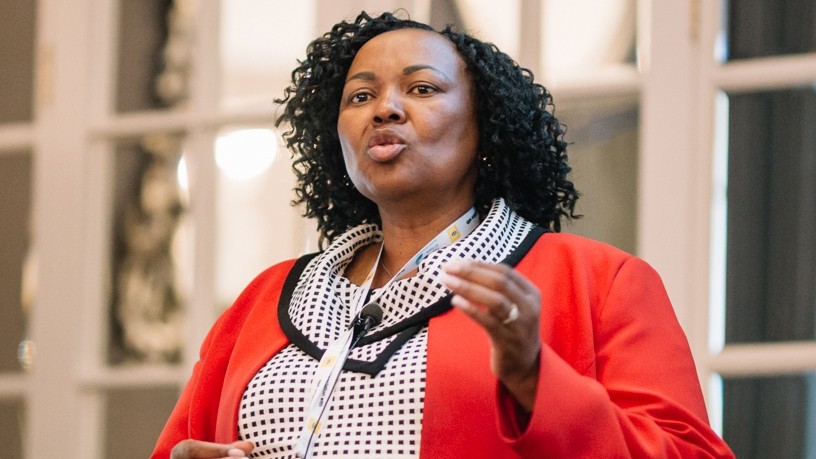
To ensure the South African Revenue Service (SARS) keeps up with innovation and emerging technologies, the organisation has introduced chief disruptors.
This was revealed by Mmamathe Makhekhe-Mokhuane, chief officer for SARS' digital information services and technology team, detailing a case study of how the revenue service is advancing in a technology-driven age.
Makhekhe-Mokhuane was speaking at the Public Sector ICT Forum event that took place at the Westcliff Hotel, in Johannesburg, yesterday. The forum, organised by ITWeb Brainstorm in association with MTN Business, is a platform for public sector ICT decision-makers to unpack topics that are key to innovation in service delivery.
The topic at yesterday's event called on senior ICT officials to discuss workplace issues and skills needed for the future workplace.
The SARS chief officer noted the main reason for introducing chief disruptors is to have people who will find creative and innovative ways to solve issues. As a result of budgetary constraints, one also has to bring in new ways of working to get the job done, she said.
After introducing the chief disruptors within her team, she said they were able to convince the organisation to move to the cloud. However, "this was not without a very big fight at first".
"We had to explain that our budget has been cut and our infrastructure has reached the end of life... so it's either we do something or close shop. Fortunately, we have gone live. My chief disruptors have worked.
"For SARS to achieve its objectives, we need people who are very radical in their thinking," said Makhekhe-Mokhuane.
Challenges to conquer
Talking about some of the challenges her organisation faces, Makhekhe-Mokhuane told delegates that SARS still has an issue with its customs area.
She gave the example of how cargo will be declared as rice that needs to reach its destination, only to find drugs when the container is opened.
Fraudulent activities are definitely an issue, she continued. "For instance, you get a truck that is filled with water and diesel and it is said to be on transit from Mozambique to somewhere. You have to pay the import duties and if it's in transit, then you are not supposed to pay them. There are quite a number of revenue leakages and these are the issues we would like to tackle with my chief disruptors. We would like to support the organisation on its revenue efforts and compliance."
Makhekhe-Mokhuane added: "We did a proof of concept on blockchain and it was very successful. We took some shipments and documented processes from end-to-end just to make sure what is declared and on consignment is the same. Technologies such as blockchain are the things we think will solve a lot of our problems."
The other issue, she pointed out, is that a lot of citizens buy products online and pay value-added tax (VAT). "The VAT will be sitting at Amazon or wherever a customer buys his or her goods. If it's a South African transaction, the VAT should be in the coffers of SARS and not sitting anywhere else in the world."
She explained further: "We looked at our mail centres in terms of the goods that come in, and one can tell just by the volumes that there is a huge gap in terms of revenue in so far as VAT is concerned. What we are doing now is looking at technology that will analyse e-commerce transactions without any interference when the transaction is taking place.
"For example, we should be able to track that the customer used a Standard Bank Visa card to pay a service provider, so that even before the goods are shipped out to the customer, we would have taken our VAT. We hope that this will help us towards collecting the R1.345 trillion that is owed to SARS."
The reason for some of these challenges, she said, is that traditional methods of people volunteering to pay tax have changed.
Planning for the future
SARS has many plans for the future, said Makhekhe-Mokhuane. She and her team of chief disruptors are focused on the Internet of everything. "If a consignment leaves China via Hong Kong and is destined for South Africa, the idea is to have technology that will alert us if anybody opens it," she indicated.
Regarding big data and artificial intelligence, she noted the case study the chief disruptors are looking at currently is how to make the connections between those people who haven't paid their taxes but there is overwhelming evidence that they should.
"It is something that we hope will go live very soon. Obviously, there are issues of legislation, debates and what we are discussing with National Treasury in terms of access to personal information, but at the same time, we are saying while citizens have their rights to privacy, they also have an obligation to pay the revenue service."
Share